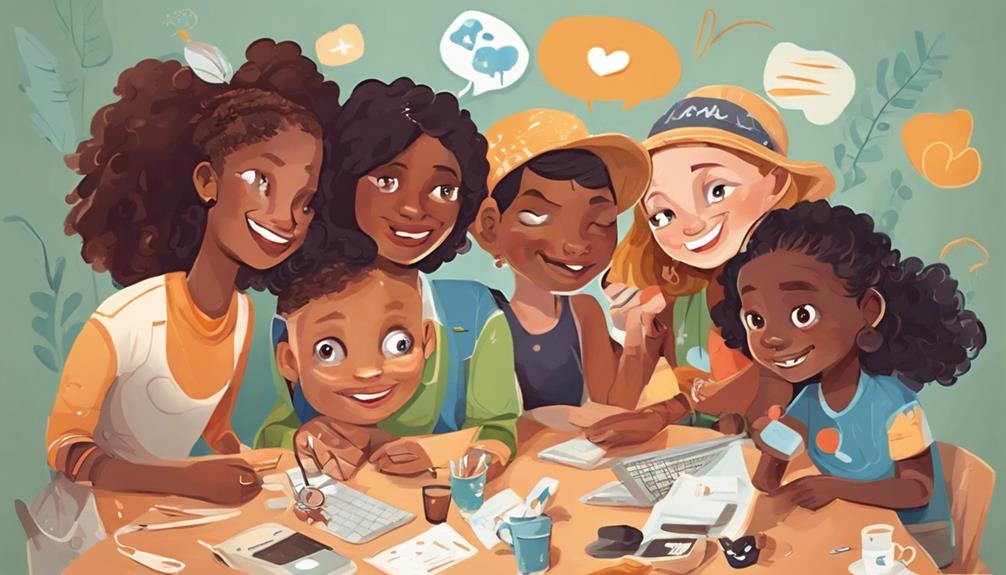Picture being at a crossroads, looking at two different paths, each offering distinct adventures and obstacles. One path leads to parenthood with its joys and sacrifices, while the other points towards a child-free life.
As we explore the perspectives of these childfree individuals, we uncover a tapestry of emotions and reflections that offer insight into their journey.
Key Takeaways
- Childfree individuals express regrets about missed family experiences and unchosen paths.
- Regret can be a mix of desire for change and wistful longing.
- Reflecting on unchosen paths is essential for understanding regrets.
- Regrets often stem from witnessing joys of parenthood in others.
Personal Stories of Regret
In our interviews with childfree individuals, personal stories of regret emerged as a common theme among those who'd chosen not to have children. Many child-free people expressed a sense of longing when witnessing the joys of parenthood in others. Some shared that while they enjoy their current lifestyle, a part of them wonders about the life without children. Regret about their decision to never have children often revolves around the idea of family and the time they could have spent raising children.
For some, the child-free regret comes in waves – a hot regret that burns with a desire for change, or a cold regret that whispers of wistful longing for the experiences they'll never have. Reflecting on unchosen paths and missed opportunities is a natural part of embracing the decision to remain child-free. It's essential to acknowledge the complexity of emotions that can arise when contemplating a life without children.
Reasons for Remaining Child-Free

Several factors drive individuals to choose a child-free lifestyle, including personal preferences, lifestyle choices, and a desire for freedom from the responsibilities and commitments of parenthood.
For many, the idea of an unplotted life without the constraints of raising children is immensely appealing. The ability to make decisions based solely on personal desires and goals is a significant draw towards remaining child-free.
Moreover, the thought of avoiding the responsibilities and milestones that come with parenthood allows individuals to maintain a sense of independence and control over their lives.
Additionally, the realization that parenthood could potentially limit the ability to pivot or change directions in life is a key consideration for those opting to stay child-free.
Furthermore, the desire to avoid lifelong connections with an ex-partner is another compelling reason for some to choose a child-free lifestyle, ensuring a focus on personal growth and fulfillment.
Reflections on Parenthood
Considering the impact of personal traits on parenting, some childfree individuals reflect on the joys and challenges of parenthood. While remaining childfree, we can't help but ponder the parenting impact of our unique characteristics. The mix of seeing parental joy and contemplating missed experiences can lead to moments of childfree regret. Despite these reflections, many of us find contentment in our decision. It's a delicate balance of acknowledging the beauty and struggles of parenthood while embracing our childfree lifestyle.
Through these reflections on parenthood, we gain a deeper understanding of ourselves and our choice to remain childfree. It's not about dismissing the value of parenting but recognizing that our path is different. The process of reflecting on parenthood allows us to explore our emotions, thoughts, and beliefs in a profound way. It's a journey of introspection that ultimately reinforces our decision to be childfree while appreciating the complexities of parenthood from a distance.
Impact on Relationships and Lifestyle

Enjoying a sense of liberation in our relationships and lifestyle, childfree individuals often prioritize personal growth and mutual interests over parental obligations. Not having children grants us the freedom to make career decisions based solely on our aspirations and goals in life. This choice allows us to delve into personal pursuits without the constraints of childcare responsibilities, fostering a deeper sense of fulfillment.
Our relationships thrive on mutual interests, as we've the time and energy to invest in shared hobbies and experiences that strengthen the bond we share with our partners. Self-care plays a significant role in our well-being, as we prioritize our mental and physical health in ways that contribute to a more balanced and fulfilling life.
- More freedom in relationships and lifestyle choices
- Greater flexibility in career decisions and personal pursuits
- Increased time for self-care and hobbies
- Focus on mutual interests and personal growth in relationships
- Prioritization of well-being and fulfillment
Perspectives on Aging Without Children
As we age without children, the concern over the lack of familial support in nursing homes becomes increasingly prevalent. People like us feel a deep need for companionship and support as we grow older. Witnessing others with adult children being visited regularly in nursing homes makes us reflect on the potential loneliness we may face.
The regret of not having a child to rely on in times of need is a sentiment shared by many. Family plays a crucial role in providing comfort and assistance during medical situations, highlighting the void we may experience without children. The unpredictability of whether children will fulfill expected roles in our aging journey adds to our worries.
Comparing our situation to the loneliness of extinct species underscores the isolation that could be looming. The importance of family connections for emotional and physical support becomes more evident as we navigate the complexities of aging without children.
Frequently Asked Questions
Do Childfree People Regret Their Decision?
We understand the curiosity about childfree individuals and regret. It's natural to wonder if we might regret our decision.
For some of us, occasional reflections on unchosen paths bring moments of wistfulness. However, overall, we find contentment in our choice.
It's okay to acknowledge the possibility of regret while feeling comfortable with our childfree lifestyle. Embracing occasional sadness about what could have been leads us to genuine peace.
What Are the Psychological Effects of Childlessness?
We find it ironic that the psychological effects of childlessness are often misunderstood. Without the context of regrets, childlessness can bring freedom, peace, and a unique sense of fulfillment.
Our identities aren't solely defined by parenthood; instead, we embrace diverse paths to self-discovery. Society's expectations may challenge us, but we navigate these waters with strength and resilience, finding joy in unconventional ways.
Childlessness enriches our lives in unexpected ways, shaping us into resilient beings.
How Many Couples Regret Not Having Kids?
We find that some couples experience regret over not having kids, although the exact percentage varies. This regret can stem from various reasons such as societal pressure, fear of loneliness in old age, or a change in priorities over time.
It's essential to acknowledge and respect each individual's unique journey and choices regarding parenthood. Ultimately, everyone's path to fulfillment and happiness is different, whether with children or without.
How Do You Accept You'll Never Have Kids?
We see acceptance of not having kids as a personal journey. It's about understanding our desires and motivations. Embracing this lifestyle means recognizing the freedom and benefits it brings.
Therapy can help in this process. Finding fulfillment in other relationships and pursuits is crucial. It's a unique path for each of us, but it's about finding contentment and joy in our choices.
Do Childfree Celebrities Experience the Same Regrets as Regular Individuals?
Many childfree celebrities embrace the decision to not have children, citing career demands and personal freedom. However, they may still experience some of the same regrets as regular individuals, such as the fear of missing out on the joys of parenthood or feeling societal pressure to conform to traditional family norms.
Conclusion
In the end, we've come to embrace our child-free lifestyle, finding joy in the freedom to travel, pursue our passions, and sleep in on weekends.
As we look back on our decisions, we can't help but feel a pang of nostalgia for the road not taken. But like a vintage record playing in the background of our lives, we wouldn't change a single note.









